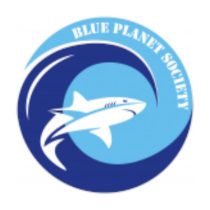Along with 17 million Brits, I ended the year watching in awe as Sir David Attenborough and the Blue Planet II team showed us spellbinding images of an underwater world “beyond our imagination”.
The series brought the wonders of the ocean into our living rooms, capturing the public imagination as never before. I nonetheless worried that the show painted too rosy a picture of an ocean we know to be in grave danger. There were hints in each episode, but it was in the finale that Sir David truly raised the alarm:
“It is now clear our actions are having a significant impact on the world’s oceans. [They] are under threat now as never before in human history”.


Sir David Attenborough was at primary school when we entered the era of plastic. “It doesn’t decay, you know, it’s wonderful!”, exclaimed his science teacher, extolling the virtues of this revolutionary new material to his class.
We’ve since created 8,300 million metric tons of the stuff, with 80% of it ending up in landfill, littering our streets, and polluting the seas. Plastic is now turning up everywhere: fish, sea salt, tap water, and even the deepest reaches of the ocean. Banning plastic bags was only the start. Seattle is banning single-use plastic straws and cutlery, while residents of one Welsh village are aiming to phase out single-use plastics altogether. Indonesia is one of the countries thinking big, pledging $1bn to tackle the problem, while UN Environment has declared “war on ocean plastic”. Global brands like Unilever are starting to make some inroads, and Adidas and Stella McCartney are using yarn made from marine litter to turn pollution into fashion.
The ocean on the international stage
The ocean made a big splash on the international stage this year. The UN appointed a Special Envoy for the Ocean and held a huge international Ocean Conference at its New York headquarters, where leaders and government representatives said they are “determined to act decisively and urgently” (see the Call for Action).
At the Our Ocean conference in Malta, they put their money where their mouth is, making financial pledges worth €7.2 billion. The ocean was also more visible than ever at the annual climate shindig in Bonn, with co-hosts Fiji working hard to put the ocean on the climate agenda.
Coral Grief

Ocean lovers worldwide despaired this year as Australia’s Great Barrier Reef continued to suffer from catastrophic bleaching. The Queensland Government has banned coal-ship loading on the reef, but the Federal Government has approved the country’s largest ever coal mine, which would ship coal from a port right on the reef’s doorstep.
Writing the reefs’ obituary may be premature, but they could be gone within the century as CO2 emissions make the seas warmer and more acidic. It is hard to find hope here, but efforts to breed corals and help them spawn are showing promise, while some areas appear to be surprisingly resilient in the face of overwhelming threats.
A new age of exploration
Each year, fascinating new scientific studies shed light on what lurks beneath. This year we learnt that oysters are sensitive to noise, found a deformed dolphin living with a pod of friendly sperm whales, and discovered new sponge species in the pacific (in the Clarion Clipperton Zone, an area slated for seabed mining).
Meanwhile, the beloved Boaty McBoatface completed its first mission and the UN declared 2021-2030 to be the “Decade of Ocean Science for Sustainable Development”, aiming to boost research efforts and inspire a new generation of marine scientists.
Hope for the high seas?
After more than 10 years of discussions, States have agreed to negotiate a new legally binding treaty for the high seas (i.e. half the planet). Most countries have expressed their support, but negotiations will be fraught.
Conservation-minded countries want to create MPAs, but some are reluctant to impose new restrictions. There are complex issues regarding the use of marine genetic resources (i.e. genes extracted from marine species and used to develop pharmaceuticals and cosmetics). Everyone agrees we should conduct environmental impact assessments for human activities on the high seas, but it isn’t clear how this will work in practice. Meanwhile, developing countries argue that they can’t properly participate unless a new agreement helps build their capacity.
Poles Apart

But it wasn’t all bad news. The International Maritime Organisation adopted the Polar Code, setting out new rules for ships crossing the polar regions. Nine countries and the EU agreed to ban commercial fishing in the Arctic for at least 16 years, giving scientists time to conduct important research before fishing becomes widespread.
The Ross Sea marine protected area (MPA) just came into force, having been agreed upon following intense diplomatic discussions at the meeting of the Convention on the Conservation of Antarctic Marine Living Resources (CCAMLR) last year. Unfortunately, States failed to maintain the momentum at this year’s meeting, as negotiations for further MPAs fell apart.
Bouncing back?
Conservation efforts seem to be helping sea turtles, with a study suggesting that they are bouncing back. Others, like the highly endangered vaquita, have not been so lucky – there are now just 30 left in the wild.
Members of the International Commission for the Conservation of Atlantic Tunas (ICCAT) decided to increase the catch quota for bluefin tuna, going against scientific advice and putting long-term recovery of the stock at risk. The news from the meeting of the Convention on Migratory Species was more positive, with Parties moving to protect six shark and ray species.
Blue future
Even as the ocean faces immense pressures from all angles, humans continue to look to the ‘Blue Economy’ for economic growth. Many countries are heavily investing in fish farming and tourism, while offshore wind has moved into the mainstream. Development of wave and tidal energy requires careful consideration if it is to provide energy without harming the environment, while seabed mining inches ever closer to fruition, despite the risks and scientific uncertainty.
Microsoft has even produced a prototype of an underwater data centre that uses the sea to cool energy intensive servers. (Google has already patented a similar system, powered by wave energy).
Conserve and Protect

The trend for declaring huge MPAs continued in 2017. Chile declared an MPA almost as big as the country itself around Easter Island, banning extractive industries and industrial fishing. Mexico put an area the size of Illinois off limits for fishing and other extractive activities, protecting the pristine and productive waters around a small group of islands 400km off the country’s Pacific coast.
The island I call home is relatively small, so it is hard to believe that the UK is custodian of the fifth largest marine estate in the world. Yet the vast waters around our remote Overseas Territories are home to the planet’s largest coral atoll and as much as a quarter of its penguins. Conservationists are now lobbying the government to create a “blue belt” around these islands, allowing ocean ecosystems to recover and marine life to thrive.
Blue Planet II was an extraordinary ode to the beauty of our ocean, a stark reminder of the challenges that lie ahead, and an impassioned call to action. In Sir David’s words:
“Surely we have a responsibility to care for our blue planet. The future of humanity, and indeed all life on Earth, now depends on us”.
The series was also a fitting end to a year of unprecedented action for the ocean, from the highest levels of international diplomacy to impassioned cities and communities. If 2017 was the year the ocean entered into the public consciousness, it might also be remembered as the moment the tide started to turn.
Glen Wright is a Research Fellow in International Marine Policy at the Institute for Sustainable Development and International Relations. Follow Glen on Twitter @MarinePolicy.





